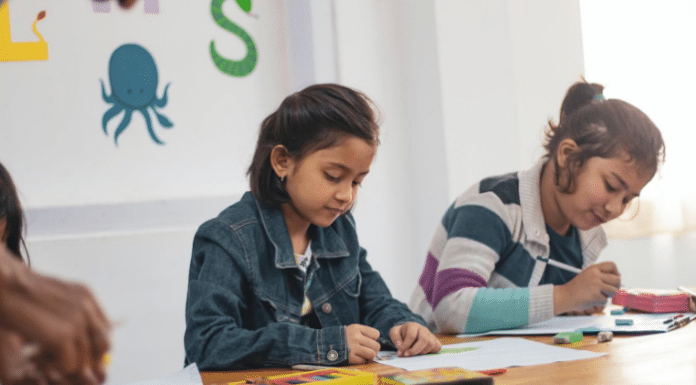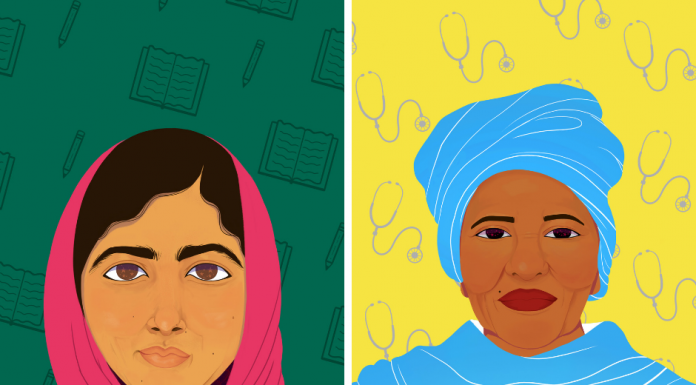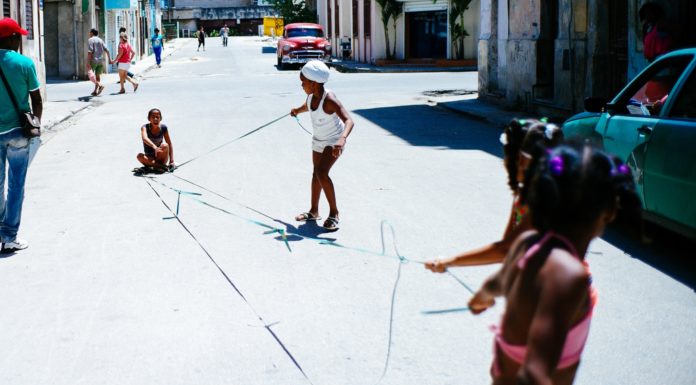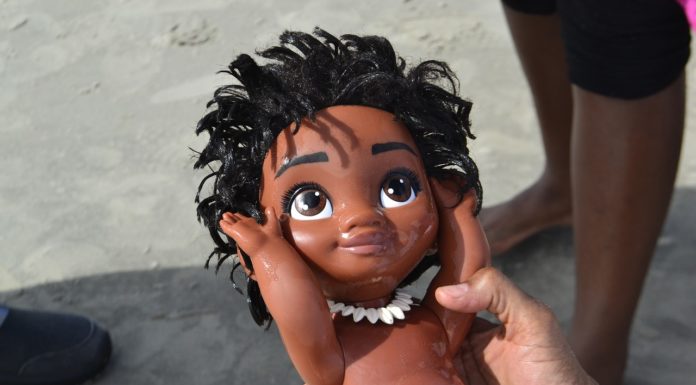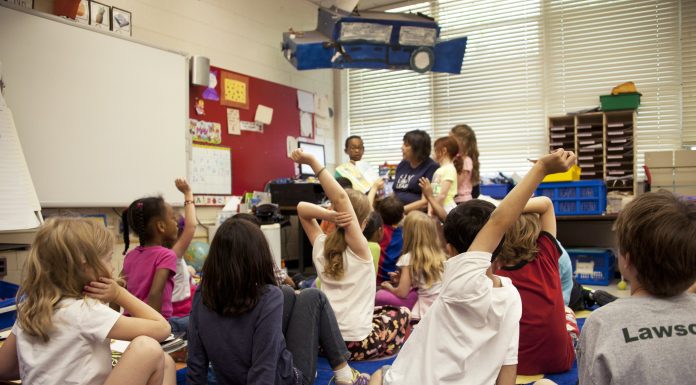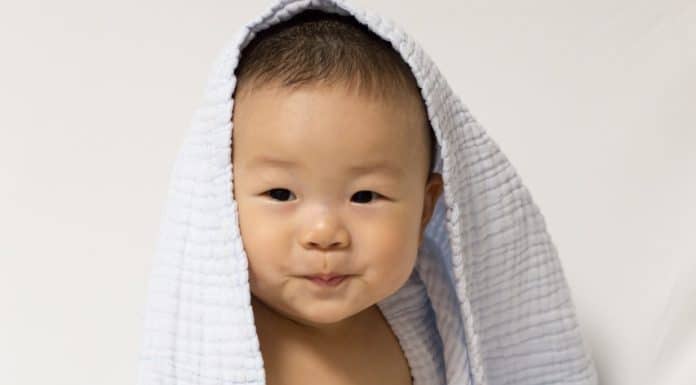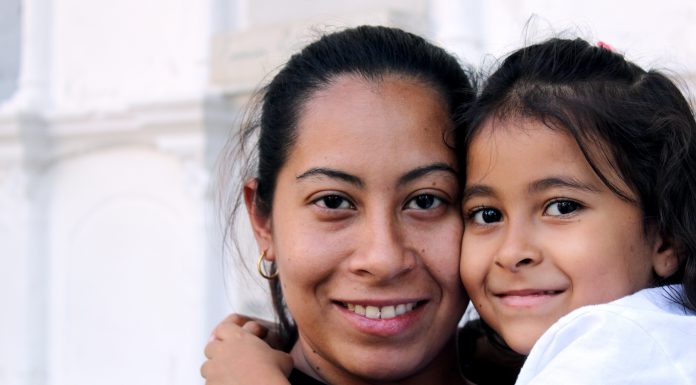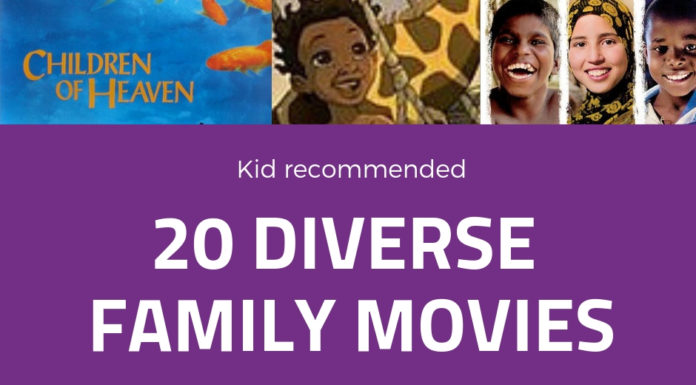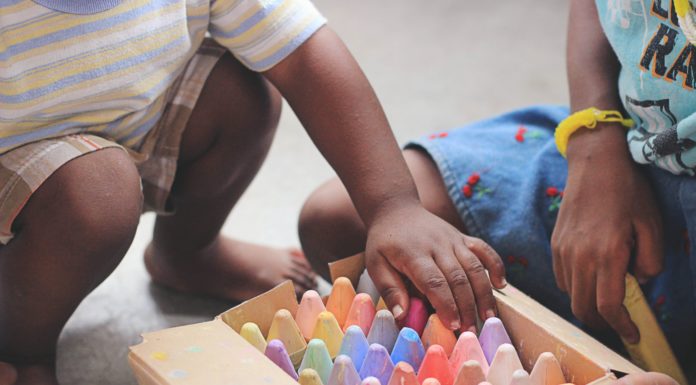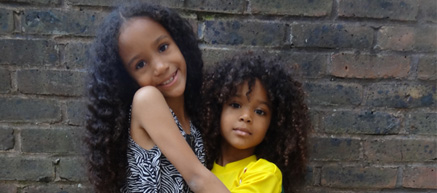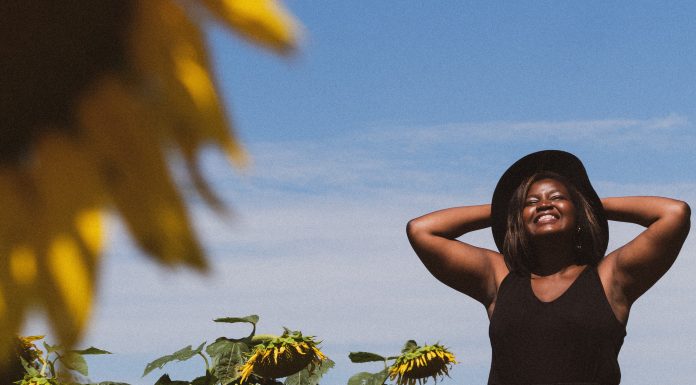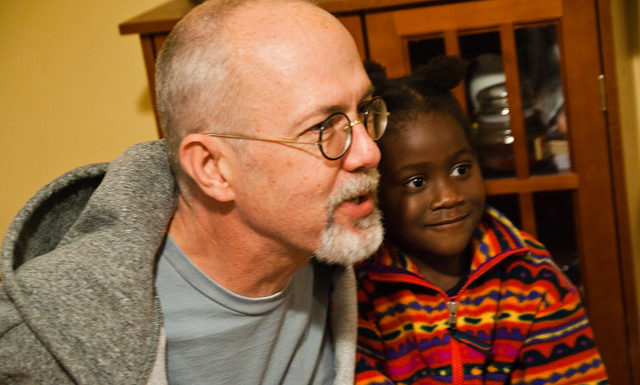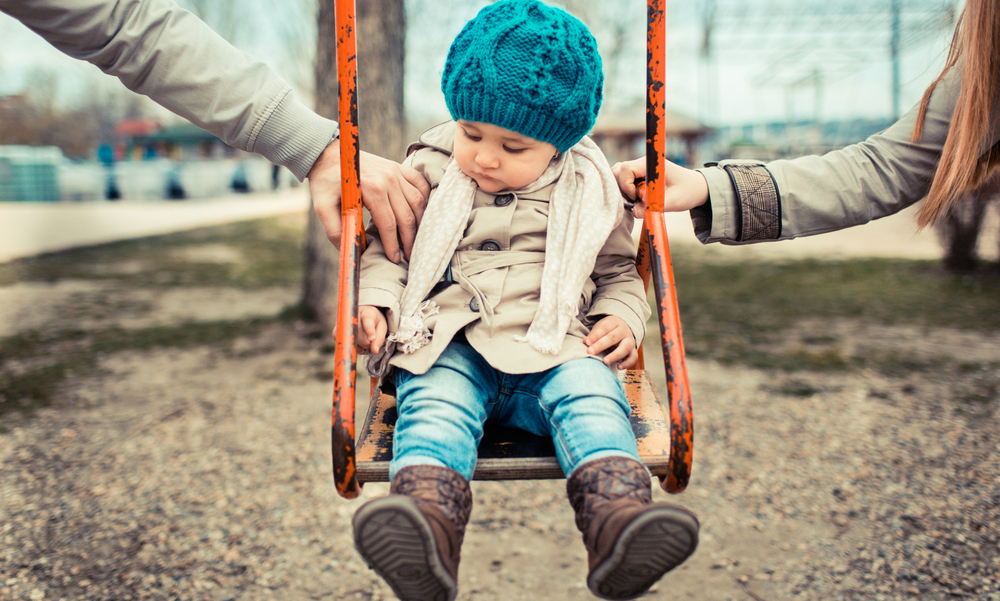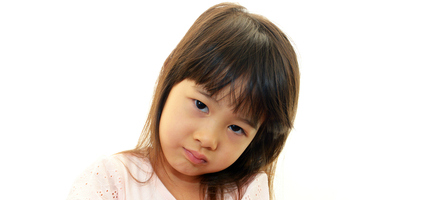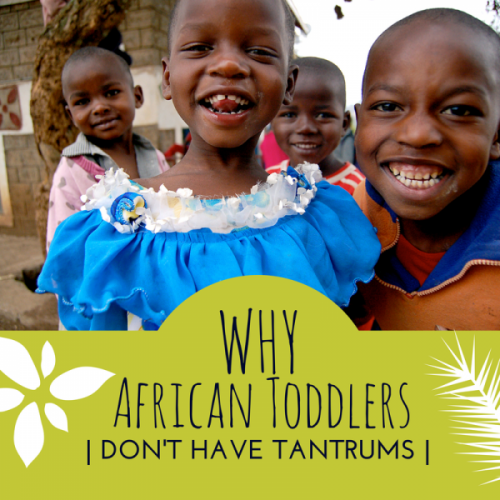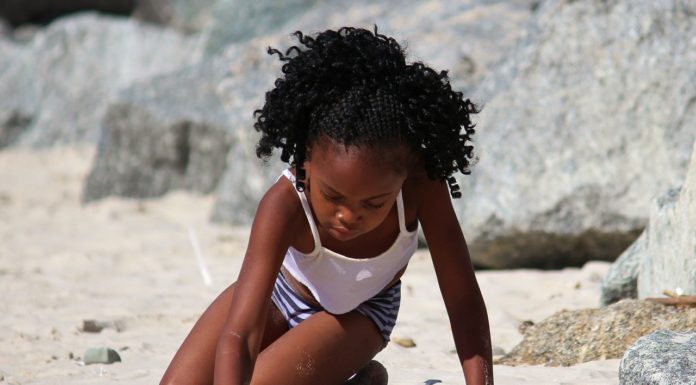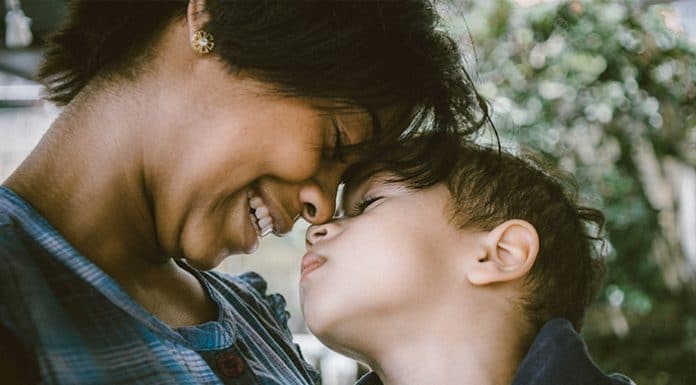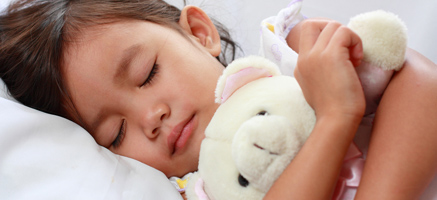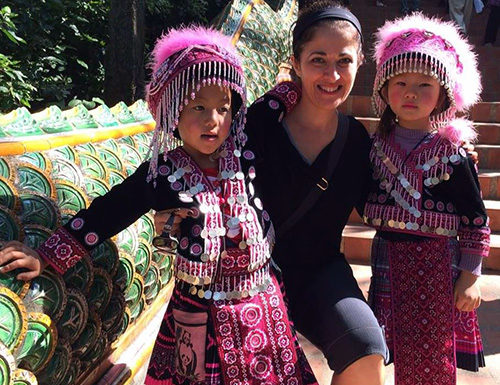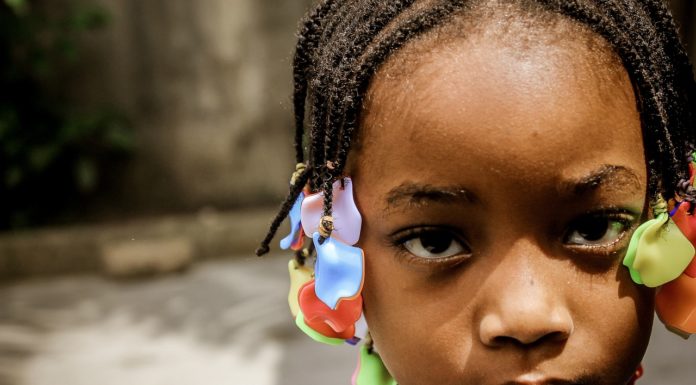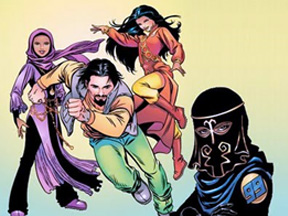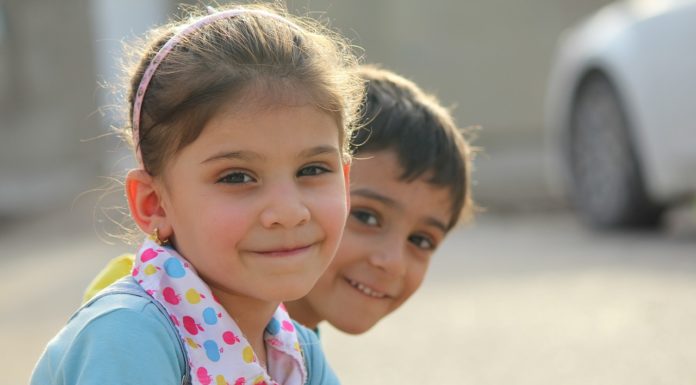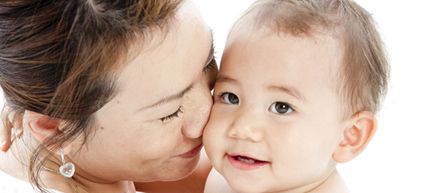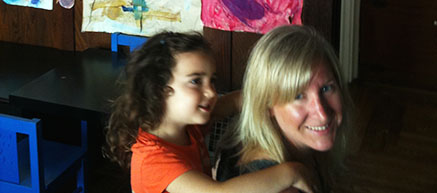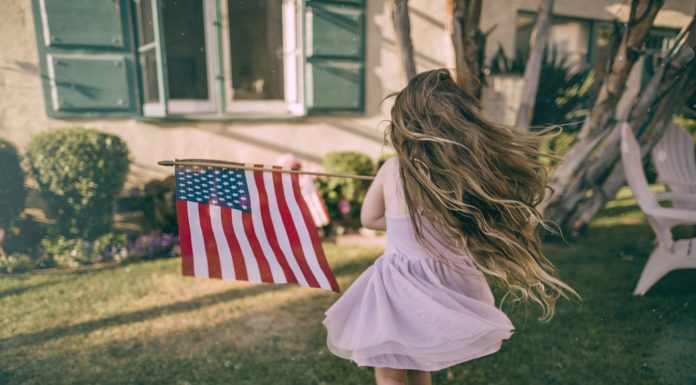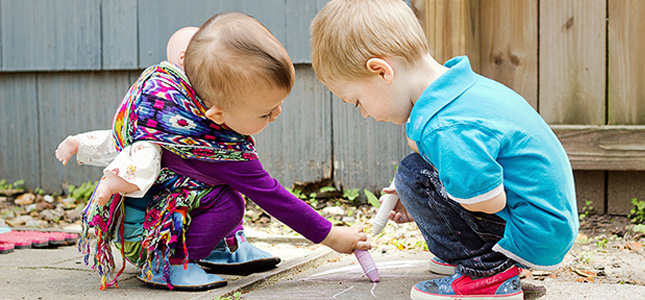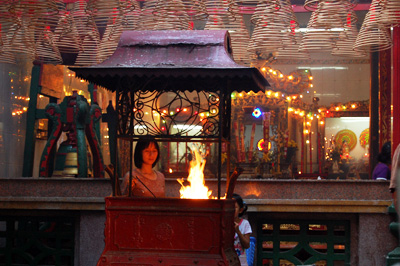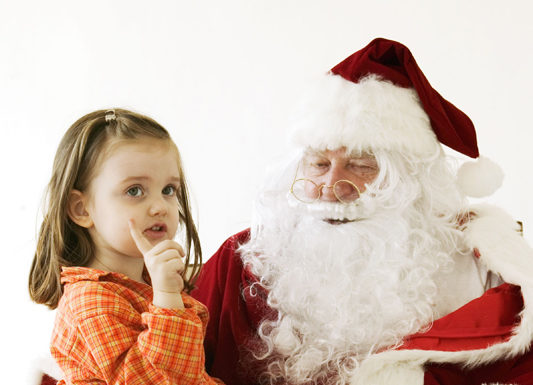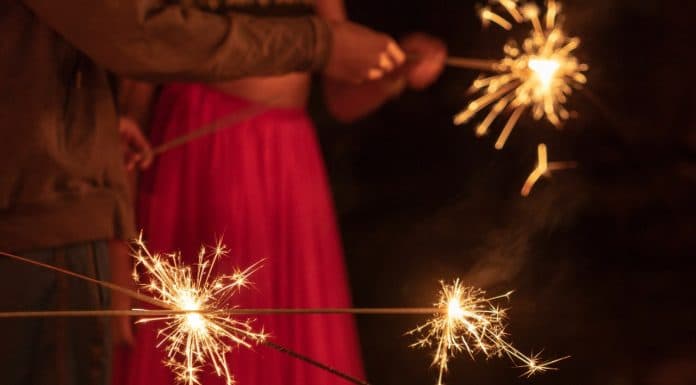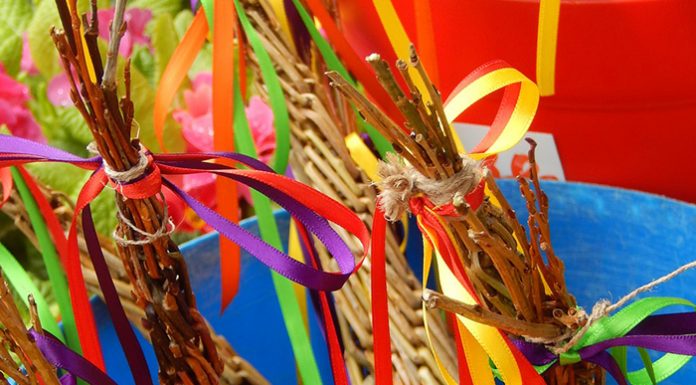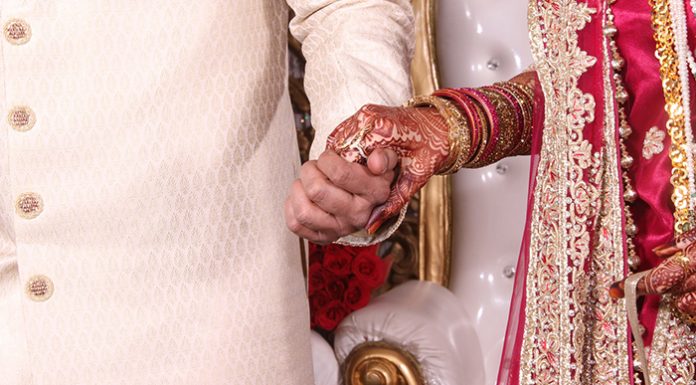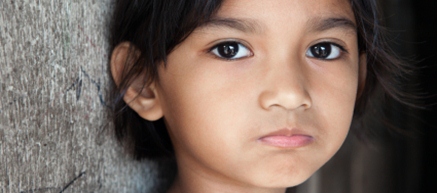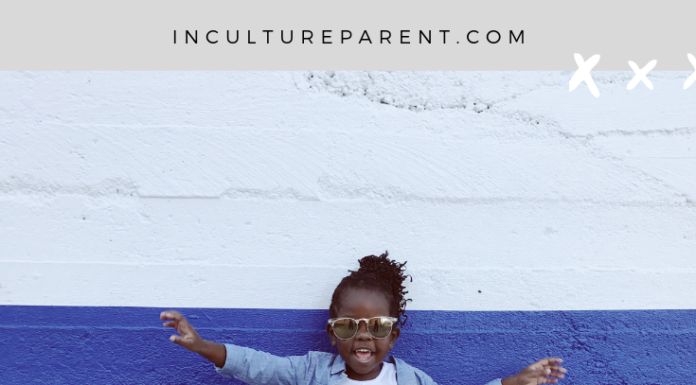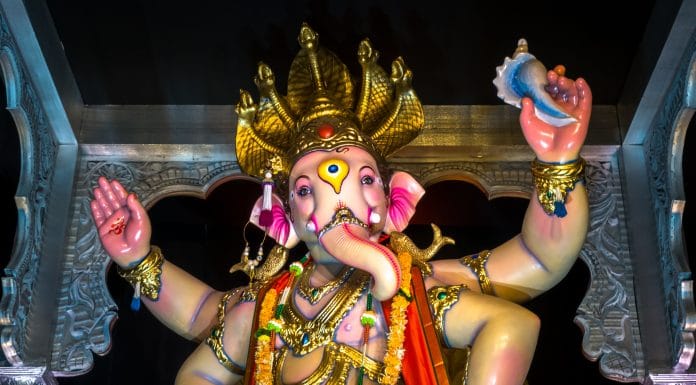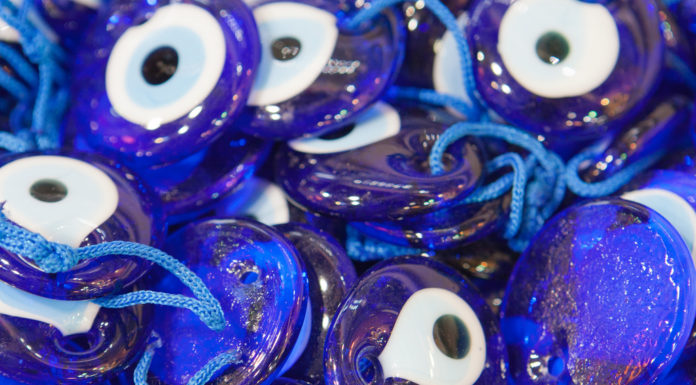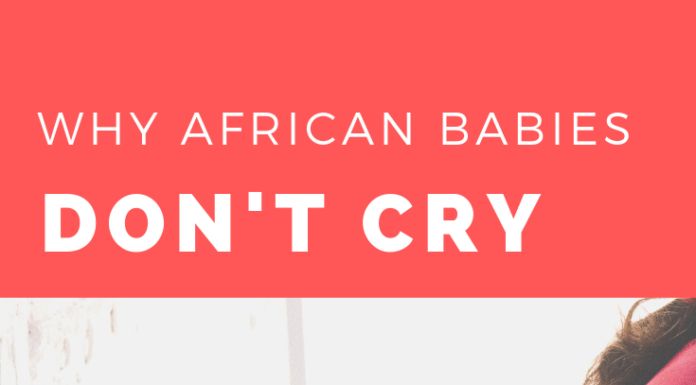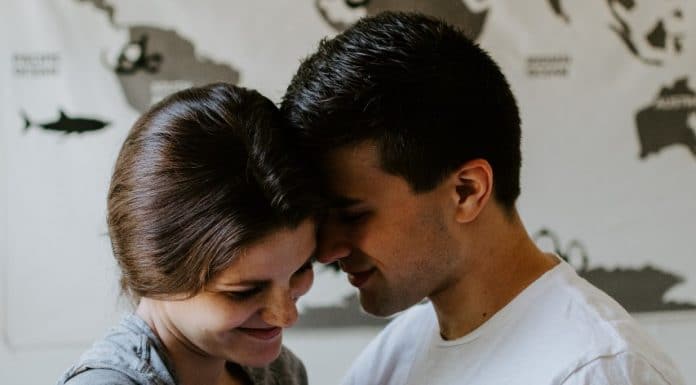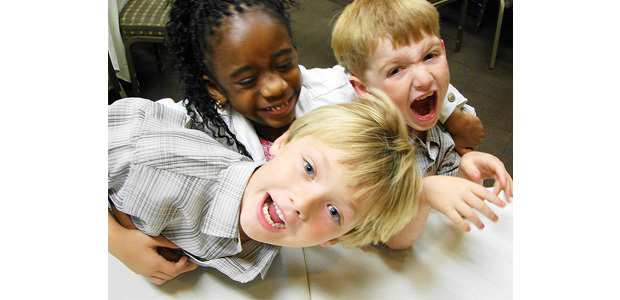After the recent killings of George Floyd and Breonna Taylor, the rise of the Black Lives Movement has started many overdue conversations about race. One word that has been coming up a lot, is the word anti-racist. But what...
One of my goals in raising Muslim kids is to give them pride in their identity. It’s hard being a Muslim child these days, as the messages Muslim kids receive from mainstream society about their identity are...
5 super fun games from around the world that all kids will enjoy
How to support white children in unlearning racism? It starts with the parents.
I picked my all-time favorite Bob Marley song when I was seven or eight-years-old and I have never changed my...
It’s Hard for White People to Talk about Racism
Many white people do not feel comfortable talking about race or racism. When I say race, I am referring -- in its simplest definition...
The gift of a white doll starts this mom on a mission for brown dolls.
One of the key goals in my kindergarten class is to create an inclusive and safe community of learners. The understanding I want my students to have when they leave my classroom is that we are all different in some ways and alike in others and that by understanding and recognizing our differences and similarities we are participating in an essential part of building a just, inclusive and safe environment. Here are the steps I have taken in my classroom to make this happen.
We live in China and have been pushing the EC method or “Elimination Communication” method since she was four months old. This is the fancy term for something that has been practiced in China for centuries. Children here are often fully “squat trained” (rather than “potty,” as those are newer inventions to the culture) by the time they’re 10 months old. In fact, if they can stand and squat, most of the time it means that they can also do their potty business without any fuss. Traditional Chinese methods have their advantages, for sure.
Many of us around the world are experiencing a dystopian reality brought on by the Coronavirus that is forcing us into family quarantine. Kids everywhere are out of school for weeks and many parents are also not...
I am always on the lookout for quality, diverse children's movies for family movie nights. I'm not the biggest fan of Disney and although many Pixar movies are wonderfully done, so many of them lack true diversity.
I love watching...
Choosing the right school for your kid is a decision that many parents don’t take lightly and it starts from preschool. The level of due diligence many parents take is the equivalent of corporate lawyers scrutinizing a deal. Selecting...
I heard it over and over again in the U.K..
“They crossed the street and wouldn't speak to me, after he died.”
“No one would talk to me about it.”
“It was the elephant in the room.”
My patients already wracked with grief...
Multicultural children are under-represented in mainstream media. The heroine is always white and black children don't usually have African features.
Travelling with children, while definitely more of a mission, contradicts the old saying that “life is about the journey, not the destination.”
Kenya is a country of over 40 distinct ethnic groups. This is a blessing and a curse. Here is why my mother gave me an identity different from her own.
More and more weddings in Nairobi are not allowing children.
Her barefoot baby ended up giving her a lesson on poverty and privilege.
10 things you may want to consider before sending in that adoption application.
How do I explain to my kids the racism that does not come in the form of explicit laws and overt, blatant prejudice?
Is Italian parenting more about respecting authority and French parenting more about autonomy? This French mom shares her thoughts.
Why many multicultural families approach seemingly simple topics like sleepovers from very different angles.
Is picking up a stranger's child invasive?
At what age does my darling black son begin to look like a threat to the world?
Illness in a foreign country can be scary but it taught this mom a different meaning of family.
African toddlers do not meltdown like Western ones. Really?
Imagine if an understanding of the innocence of childhood is so deeply embedded into society, it is not even a topic of conversation.
Despite being a family that opposes war, we wanted to teach the kids that holidays are not just for shopping, but for reflecting on historical events as well as those who have died for their country.
Motherhood is more difficult than I thought it would be, a lot more difficult. The witching hour is no joke, and is why, I am certain, cocktail hour was invented.
It turns out the answer may be cultural.
All too often what might be misinterpreted as a superiority complex over another culture by someone who fits my description is actually something else worth discussing: a cultural defense mechanism. Do we as English-speaking WASPs have a right to defend our culture, one that is so globally pervasive in both media and entertainment? I am about to argue that we do.
We realized explaining a divided Berlin to our children was going to be a lot more complicated than telling them it used to separate the good guys from the bad guys, as our own upbringings as parents had everything to do with our view of history.
Why raising global kids is so important and the one quote everyone should keep in mind.
I never thought I would struggle to buy clothes for my daughter this young.
Tired of princesses who wear pink and need to be rescued? Here are some ideas to tweak the story!
I am all for piercing our daughter's ears and my husband is totally against it. It's cultural.
Would she feel irritable about the language barrier, hate the food or complain so relentlessly that I’d fantasize about leaving her stranded on a downtown street corner?
The criticism that the filmmakers of "American Promise" have faced for filming their kids over the course of 13 years misses the point entirely.
Three secrets why Kenya, like many African countries, is seamlessly multilingual.
I am being pressured by my Chinese mother-in-law to take a week away from my daughter
Stereotypes run rampant in much of our media consumption and children’s cartoons are no exception. We wanted to find more cartoons that feature kids of different races and ethnicities across cultural backgrounds. Here's our list.
Is it the punitive work culture in Japan that keeps Japanese dads away or gender roles and expectations?
Berkeley, California has a unique school system, compared to most of the U.S. Here's what I love about it.
My six-year-old daughter is now one of an incredible number of children in America who bobble back and forth between two homes due to separation or divorce. At first she was stressed about ping-ponging between my home and her dad's and resisted the whole enterprise. Eight months into it she has, for the moment at least, accepted her current reality and has found ways even to enjoy it.
There are a number of us in the States who seem to be falling over in toddler-styled apoplectic fits over the positive press French parenting has been receiving of late. One of the most common complaints I saw emerging from the comment discussions is the French propensity for la fessée or spanking.
My husband and I are both foreigners in Japan, and even the cultures we were raised in are so different: American and Chinese. This has given me a chance to see childrearing from so many different perspectives. For as long as I could remember, my parents hardly ever hugged or kissed us, or each other. Nor did we say “I love you” to each other. My parents share the same sentiments as Japanese parents: I don’t need to say “I love you” because I say it with my actions which are weightier than words.
Why do presents when you can donate your child’s birthday to so many great causes
I didn't grow up in a very happy household. My parents saw the world as a menacing place, full of people out to screw you. For years I didn't understand that happiness is something you create and are uniquely responsible for. I thought that was one of those bullshit concepts only highly evolved spiritual people or fake happy people really thought.
I don’t know how to run a lemonade stand, make ice pops or build a sandcastle—all time-honored traditions of an American summer that I am struggling to acquire alongside my three-year-old Indian-American daughter. Among the many cultural dilemmas that we immigrant parents in the U.S. navigate when raising our children in a completely different culture is how to engage in the everyday rituals of our adopted homeland so that our children can fully embrace their hyphenated heritage.
Mother’s Day came and went this year without as much as a “Happy Mother’s Day” from my husband. I have to admit that my experience of special occasions in China is quite often disappointing and I wonder if it’s just a Chinese cultural thing. But I am Canadian. I have Canadian needs. Even though I live in a Chinese culture, I can’t erase my culture, nor would I want to. In Canada, Mother’s Day is a time for special treatment. So here's how I fixed it.
As parents of a curious toddler, my husband and I are always looking for fun, active things that we can do as a family. Family yoga has become a natural fit. It’s healthy for our minds and bodies. We can do it anywhere and use our imaginations. And we can each participate at our own levels.
Every year we go back to Ecuador in the summer so my kids can experience my heritage and language. But raising multicultural kids means influences from her American family are visible even in the most unexpected places.
When your child comes out to you, it may come as a big surprise, no matter how gay friendly your family is. Make sure you’re prepared for the moment and are able to best support your child as we live in a word where gayness is seen as a flaw rather than another facet of who a child is. Here are 7 tips to make sure you don't blow the moment.
Would you judge a mom giving coffee to her infant in a bottle? You shouldn't. Here's why.
It is an argument used by parents of picky eaters the world over: think of the starving children in Africa. But in Kenya where those starving children can be found on your doorstep, such admonishment applies to nearly anyone with a self-imposed dietary restriction. When I tell people that I am a vegetarian they assume it must be for medical reasons. Why else would an African woman who can afford to eat meat blankly refuse what so many of her compatriots don’t have the luxury to turn down?
When did my son begin to find his heritage? Not an easy thing for non-Native parents, despite my research and graduate degree in educational experiences of First Nations’ women artists. He knows that there was a man who fathered him for a year and then left. This he should know is not part of the Native American culture, nor part of a tradition, but just a bad call by a young man who couldn’t be a father to him for more than that.
Play is one of those magical activities that connects us as human beings. Children have an innate sense of play through which they discover the world and their place in it. InCultureParent takes you from Chile to Indonesia and beyond to celebrate kids playing around the world.
In Kenya, moms never seem to lose it with their kids. They are not prone to bouts of irrational rage at their children. They do not joke about drinking wine in sippy cups. They seem calmer and less stressed. Why is that?
For years, I tried to talk about Dr. King without talking about racism. I thought my students would understand the themes of courage, social justice and empathy by talking in general terms about Dr. King’s dream of an inclusive world. I was wrong. So I came up with a new approach.
When I was pregnant, we assumed that our baby would be an even mix: my Mexican husband’s dark brown complexion and black hair, plus my light skin and blue eyes, would naturally produce a tan child. Coffee with milk. Instead, our son has my exact coloring.
An exploration of some of the more contentious points in French parenting like corporal punishment and leaving kids to fend for themselves along with random observations like the prominence of French three and four-year-olds with dummies—aka pacifiers—and security blankets?
When my son's patka (small Sikh turban) was pulled off his head at school, my initial reaction was to educate the children about what the patka represents. I was hoping that the bullying incident might have encouraged his teachers to become more culturally responsive. I was very wrong.
When my daughter was born, my mother-in-law left her hometown and moved to Beijing, separated from her husband for the first time in their 35-year marriage. She left behind a prominent career as well as her aged father (my husband’s grandfather) for whom she was the primary caregiver for the past decade. A new generation is that important. Her role is clear. She has to be here.
New mom Justine gets quite the shock when her Turkish in-laws first meet the baby. But things are not what they seem.
As a first generation American, you always watched other families sitting around a Christmas tree or carving a turkey, consoled by watching reruns of “It’s a Wonderful Life.” But Chinese New Year—that was different. That was my holiday, the one that made waking up early exciting, slowly lulled awake by the smells of burning incense, and the 10 special dishes my mom prepared, dishes with names that alluded to prosperity and luck.
Most studies I have read tend to focus on childcare, who is the next-best person to look after the child(ren) in question, how long the mother should be at home with the child before starting work and so on. These are of course all important factors but I think that they forget one critical factor—in Africa at least, women have always worked while having children. The two were intertwined.
In Nigeria, we believe in showing the utmost respect for your elders. In the Yoruba tribe, we have several cultural norms related to how you greet and address elders. Fast forward to raising a child in America. How does one combine “hi mommy” with the “good morning mommy” from home? How do you teach your child what is valuable to you in your culture?
Have our lives become too segmented? Shouldn't everything be child friendly?
The last time I lived as an expat, I was single, nineteen, with no dependents. I had dropped out of college and moved to Europe to figure out what I wanted to do with my life. When I accepted an international assignment last year, my return to the expat life included a husband, three kids and two pets. This probably doesn’t need to be said but moving a family of five (or seven if you count four-legged and winged members) is no simple feat.
For the many families who practice faiths other than Christianity, Christmas can be the source of as much angst as joy. Each year we must grapple with questions such as: How do we explain to our little ones why Santa doesn't come to our house? Is it wrong to string up some lights or put up a tree even if Christmas isn't really our holiday? More fundamentally, how do we teach our children to respect this special time without confusing them about their own religious identity?
The question of my origin is always inevitable. Depending on the person on the opposite end of the conversation, my Jamaican heritage may be embraced like a novelty or dismissed with a statement like, “Oh, you’re an American.” In my experience, the latter always stems from Jamaicans. Jamaicans have their own assessment of a “true” Jamaican based on three major criteria.
Three mindful steps we can take to ensure that our children will turn toward us not away from us during these turbulent years.
As an early childhood music and movement specialist, I like to start each school year by exploring music and dance from the continent of Africa. In Africa, music is deeply integrated into daily activities, it is used to convey news, to teach, to tell stories, for religious purposes and a lot more. Music and dance often overlap and in some languages, the same word is used to represent the two.
Growing up in India, Diwali was the most anticipated day of the year. Diwali meant new clothes, lots of delicious treats, lighting lamps/lights, setting off a gazillion fireworks, a sparklingly clean home and vacation from school that lasted around 10 days. But in the U.S., it's all very different.
One day, while driving around in our car, my four-year-old son complained from behind, “Ma, I wish all of us were not Indians. It is boring. You or Appa could have been Mexican or Italian.” I smiled at his wish for our family to be biracial. I was also proud because the global mindset that we have tried to infuse in our children early on, was presenting itself in little ways—like how he thought a third language or a piñata could spice up our lives.
This black American father ponders the language we use to talk about race and wonders, what exactly should he call his child that his white wife and he have brought into the world? Is he mixed? Multicultural? Biracial? All these terms have their own set of difficulties.
Soccer teaches kids eight key lessons about global citizenship
Understanding the rules of Kenyan culture as a foreigner is sometimes challenging, like why strangers always wanted to take my child’s toys away.
China is a country full of knock-offs. Everyone here knows that to be true and so my Chinese husband and his parents have been adamant that we need to buy a stroller that wasn’t made in China. After all, they say, “made in China” doesn’t always mean solid. But that proved a little tricky.
If we are honest, as parents we would all probably like to see our children join a monastery and be celibate until they are older and more mature! How many of us can forget the turbulent early years of trying to negotiate our own sexual terrain? In this article, I would like to introduce a mindful approach to sexuality and parenting.
The melodic foreign names (Surya Bonaly, for example), the vibrant flags, the robust strains of the medalists’ national anthems and the inspiring, personal stories of athletes’ struggles and victories provide windows to different parts of the world.
What happens when you put a couple of kids who speak very little Chichewa into a group of kids that speak about the same amount of English? See how they play.
A World Geography Lesson for Kids through the Summer Olympics
The West's paranoia of strangers with our children and the big difference in Asia.
I wondered if I had wasted my time taking my 14-year-old on a Baha'i retreat. Then she surprised me on the last day.
Normal to my expat kids in Hong Kong is pureed fresh mango ice pops, traditional Shabbat dinners and live-in help
A Buddhist approach to dealing with the tough teenage years
I anticipated that breastfeeding in public would be a problem in a country where the Muslim women routinely covered their heads and exposed very little flesh. I was wrong.
When she turned 15, my daughter announced her intention to start wearing the hijab (Muslim head scarf). At the time, we had been living in Qatar for nine years and upon our arrival in Dubai she donned her first veil. Nothing prepared me for the deluge of feelings that followed.
Though I've listened to Czech girlfriends cite instances where they felt Czech men (even their own fathers, uncles and brothers) took the tradition out of hand, I always assumed that if a woman said she didn't want to be whipped her wishes would be respected. I was wrong.
Raising children in a multicultural setting can be challenging, especially when two cultures say the exact opposite about caring for your child. In my case, American and Chinese cultures disagree on everything from sleep to independence and temperature.
We’re your typical nontraditional family
Blonde, blue-eyed, and with the exceedingly fair skin of her Swiss-German ancestors, my daughter blended well into the sea of faces in her first grade classroom. But the truth was then and is now that she feels more at home with the one Iranian Muslim family in town, which shares with us one of our major holidays—Naw Ruz—as well as the practices of fasting and daily obligatory prayer.
I belong to a faith with virtually no rituals, and holidays almost no one around me has heard of. As a Baha’i, we avoid rituals but we do worship God, have sacred writings and prayers, a rich history, a worldwide community, laws (like getting the consent of living parents before marriage), and guidelines for daily living.
The freedom of growing up as the only Serbo-Croatian (with a Sudanese stepfather) in Sudan.
In the Pashtun culture, we celebrate the 40th day after childbirth by the mother officially bathing, praying and giving money to charity. I followed tradition, with the knowledge that while this was a celebratory time for most mothers, I was grieving my empty womb. On my prayer mat, I cried throughout my prayer.
Today’s kids need to know about the world’s celebrated visionaries and its unsung heroes too. One mom shares her thoughts on heroes, raising global kids and cultural literacy.
Here are our InCultureParent readers’ favorites over this past year.
In Chinese culture, the moon month, also translated as “sitting out the month,” “lying in” or “confinement in childbirth,” is a month-long sojourn in the home for postpartum women. Sounds great, right? Well, part of this tradition requires that women not...
I’ve realized the term “love marriage” is absent in the West. In India and a few other countries in South Asia, it would denote one of the two possible ways leading to a union, the other being arranged marriage.
During one of our adoption homestudy visits, I remember scrambling to move a large framed print of a green devil from view in our TV room. Yet, the framed Korean mask dance figures which appeared far scarier to me at the time, remained on display. This was my choice, of course, but I felt it was dictated by expectations of our family and household. "Multiculturalism" is good, "devil" is bad.
My eight-year-old daughter did something a few weeks ago that surprised me. She asked me what “Asian” meant. For my kids, a person is either brown like us, dark brown or yellow haired.
I came to Amy Chua’s book, Battle Hymn of the Tiger Mother, and its controversy late. Even though I never had parents who hit me or called me garbage, I could relate to a lot of what Any Chua had to say. Like Amy Chua,my parent’s held an unfailing belief that I would succeed.
My childhood world was loosely divided into Inside (the “Arabs” and friends) and Outside (the “Americans”). But, of course, one could not examine this division too closely or it would start to crumble. For one, my father and his brothers had married Americans.
My Indian heritage has defined who I have been for most of my life, that is, until I became a mother. The business of raising children makes nearly everything else fall to the back burner.The identities of “mother” and “wife” took precedence over that of “tribal member.”
My eldest is fascinated by comparisons of the largest tsunamis or most populated cities in the world. One night at the dinner table, he asks, “Mama, what is the tallest building in New York City?”
My six-year-old, Luca, is at the age where he is starting to understand complicated concepts in the world around him. But it is difficult for a six-year-old to understand that his father cannot travel home to China because the government does not allow him to enter the country.
We have a weird relationship to babies and sleep in the West. In the majority of non-Western societies, babies sleep with their parents--if not in the bed, then in the same room. So do young children. It is only in industrialized Western countries that sleep has become a compartmentalized, private affair.
When my daughter (aged three) started to ask questions about why we were not the same colour, I asked her what colour she thought she was.
In a country where women routinely consult the Chinese zodiac to determine the most auspicious date for the caesarean delivery of their babies, I was preparing for a natural childbirth in a private English hospital on the top of Hong Kong’s highest mountain in the days just after the British handover of the colony to China.
Before the seventies, breastfeeding was the norm in Italy. But the feminist revolution paralleled the invasion of the first multinational companies shortly after 1968 and changed all that.
Growing up brown in White America and wanting something different for your kids.
Strolling through Prague's parks, I encountered locals sunning themselves and even saw a few toddlers in the buff testing out the city's newly activated fountains. While I managed to keep my own and my kids' clothes on (though I lost the battle over shoes), I noticed many Czechs of both genders stripped down to their underwear in the public parks.
There is an oft-quoted African saying, “It takes a village to raise a child.” Less cited is the second half of the saying, “...and a community to keep the parents sane.”
I remember when I first showed my son an illustrated Bhagavad Gita—Our Most Dear Friend by Visakha. He was two years old and was too young for the text, but we gazed at the pictures together while sitting in our sunny living room as the fireplace warmed our feet.
Although I was born in San Juan, Puerto Rico to Cuban parents and am unconditionally of 100 percent Cuban descent, I have often felt somewhat disconnected from being a true Latina due to the color of my skin.
In France, officials and pundits like to talk about how France is 20 years behind the United States. Sometimes this is portrayed as a positive (obesity rates, crime statistics), and sometimes as a negative (technology, business, customer service).
In Israel almost everyone is Jewish, except of course for the Arabs with whom Jews rarely interact. As a Jew, if you decide to marry outside your religion or even do something as minor as celebrate a non-Jewish holiday in your own home, you experience a sense of betrayal.
In Mongolia, breast milk is not just for babies, it's not only about nutrition, and it's definitely not something you need to be discreet about. It's the stuff Genghis Khan was made of.
I remember my early childhood, growing up in the Kingdom of Saudi Arabia (KSA), as disturbing. Forced to cover my body in black from head to toe in the morning to go to school and then changing into a miniskirt to go out in the evenings was the source of much confusion for an eight-year-old girl.
Most of what I remember of my childhood consists of the image of my mother standing over me with a rattan cane in her hand, her eyebrows bunched together and her lips in a tight line. There was a lot of yelling, a lot of "Why are you so stupid?", and a lot of hitting. Even the teachers knew not to ask what I had done wrong when I showed up in school the next day, limping, with swollen purple gashes on my calves.
Growing up in a traditional Armenian home in Southern California, we had many superstitions and rituals. My mother was and still is the queen of superstition. Here are just a few of the many superstitions we followed:
No whistling especially at night or evil spirits will come.
No cutting your nails at night. This will shorten your life.
I was born and grew up in Kenya and Cote d'Ivoire. From the age of fifteen I lived in the UK. However, I always knew that I wanted to raise my children (whenever I had them) at home in Kenya.
I had my parents quite nervous about whether or not I would ever get married and have a family. No one was quite sure when I would run off to the Himalayas and I am sure there was some heavy betting going on with high odds that I was going to do just that. Well, I am glad I didn't run off, as there was never any need to and I am glad I decided to get married and make babies. My wife was completely floored when I proposed.
Dealing with frizzy, knotted, and tangled hair, are common concerns of parents with multi-ethnic children. Regardless of the ethnic background of the parents, a multi-ethnic child's hair texture will probably be unlike either parent.
I have one of those families that turn heads. I usually don’t notice. I am too busy shooshing everyone because we are also very loud. But every now and then I notice people have no clue what to make of us and look at us quite perplexed. I am the mother of 6 kids. We are a family of 8.
It wasn't until we adopted our daughter Willow that the full scale of the communication gulf between my husband's parents and me became plain.
The first major difficulty in my multicultural marriage was over circumcision. The Turkish custom of circumcision was the first custom I downright refused to go along with.




























